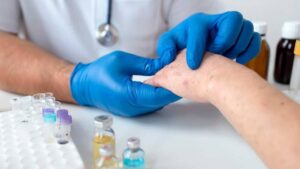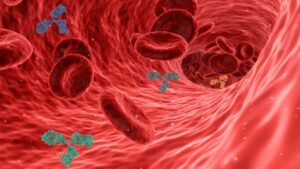Herpes can affect people of all ages, but outbreaks and symptoms tend to be more common and persistent in older individuals. In this article, discover the relationship between herpes and aging, as well as effective strategies for managing outbreaks and symptoms.
As we age, our immune system tends to weaken, making us more susceptible to viral infections, including herpes. Additionally, prior exposure to the virus over the years can lead to increased recurrence of outbreaks. It is important to understand that the herpes virus remains in the body even when there are no visible symptoms, and outbreaks can occur due to triggering factors such as stress, intense sun exposure, fever, or other infections.
Management of Herpes Outbreaks and Symptoms in Older Individuals
Effective management of herpes outbreaks and symptoms in older individuals requires a holistic approach that includes preventive care and appropriate treatments. Here are some helpful strategies:
- Awareness and education: It is essential for older individuals to be well-informed about herpes and its symptoms. This can help reduce the stigma associated with the disease and ensure appropriate measures are taken in case of outbreaks.
- Personal hygiene: Good personal hygiene is crucial to prevent the spread of the herpes virus. Regularly wash hands and avoid touching the blisters. Additionally, avoid sharing personal items such as towels or kitchen utensils to minimize the risk of contagion.
- Sun protection: Excessive sun exposure can trigger herpes outbreaks. It is important for older individuals to use broad-spectrum sunscreen and avoid prolonged sun exposure, especially during peak hours.
- Stress reduction: Stress can trigger herpes outbreaks, so it is essential to find effective ways to manage it. Practices such as regular physical exercise, meditation, yoga, or relaxing hobbies can help reduce stress and strengthen the immune system.
- Balanced diet: A healthy and balanced diet plays a crucial role in maintaining a strong immune system. Include natural supplements and foods rich in vitamins, minerals, and antioxidants, such as fruits, vegetables, whole grains, and lean proteins, in your daily diet.
- Antiviral medications: In case of recurrent or severe outbreaks, doctors may prescribe antiviral medications to reduce the replication of the virus and alleviate symptoms. These medications are most effective when initiated at the onset of symptoms or during the prodromal periods, which are the signs that precede the appearance of blisters.
- Regular doctor visits: It is important for older individuals with herpes to maintain regular appointments with their doctor. The healthcare professional can assess the severity of outbreaks, adjust treatment as needed, and provide specific guidance for managing the condition.
- Emotional support: Herpes can have a significant emotional impact, especially on older individuals who may feel embarrassed or isolated. It is essential to have a support network that offers emotional support and understanding. Support groups, individual therapy, or online resources can be helpful in addressing the emotional aspects of the condition.
- Vaccination: Currently, there are vaccines available to prevent herpes virus infection. While there is no fully effective vaccine to prevent genital herpes, vaccination can reduce the severity and frequency of outbreaks. Discuss with your doctor the possibility of getting vaccinated and whether it is a suitable option for you.
It is important to remember that each person is unique, and the management of herpes may vary based on individual characteristics. Regular medical follow-up and open communication with healthcare professionals are crucial in finding the most appropriate approach for each case.
Additionally, it is crucial for older individuals to be aware that herpes is not a condition that defines their identity or worth as individuals. It is a common and treatable disease, and emotional support and understanding from loved ones play an important role in the management process.
Summary
Aging can increase susceptibility to herpes outbreaks, but with proper management and care, it is possible to minimize symptoms and improve quality of life.
Awareness, education, adopting preventive measures, regular doctor visits, and emotional support are essential for the effective management of herpes in older individuals. With appropriate treatment and a healthy lifestyle, it is possible to live a fulfilling and happy life, even with the presence of herpes.
Read also: Living with Herpes Long-Term: Strategies for a Fulfilling Life




